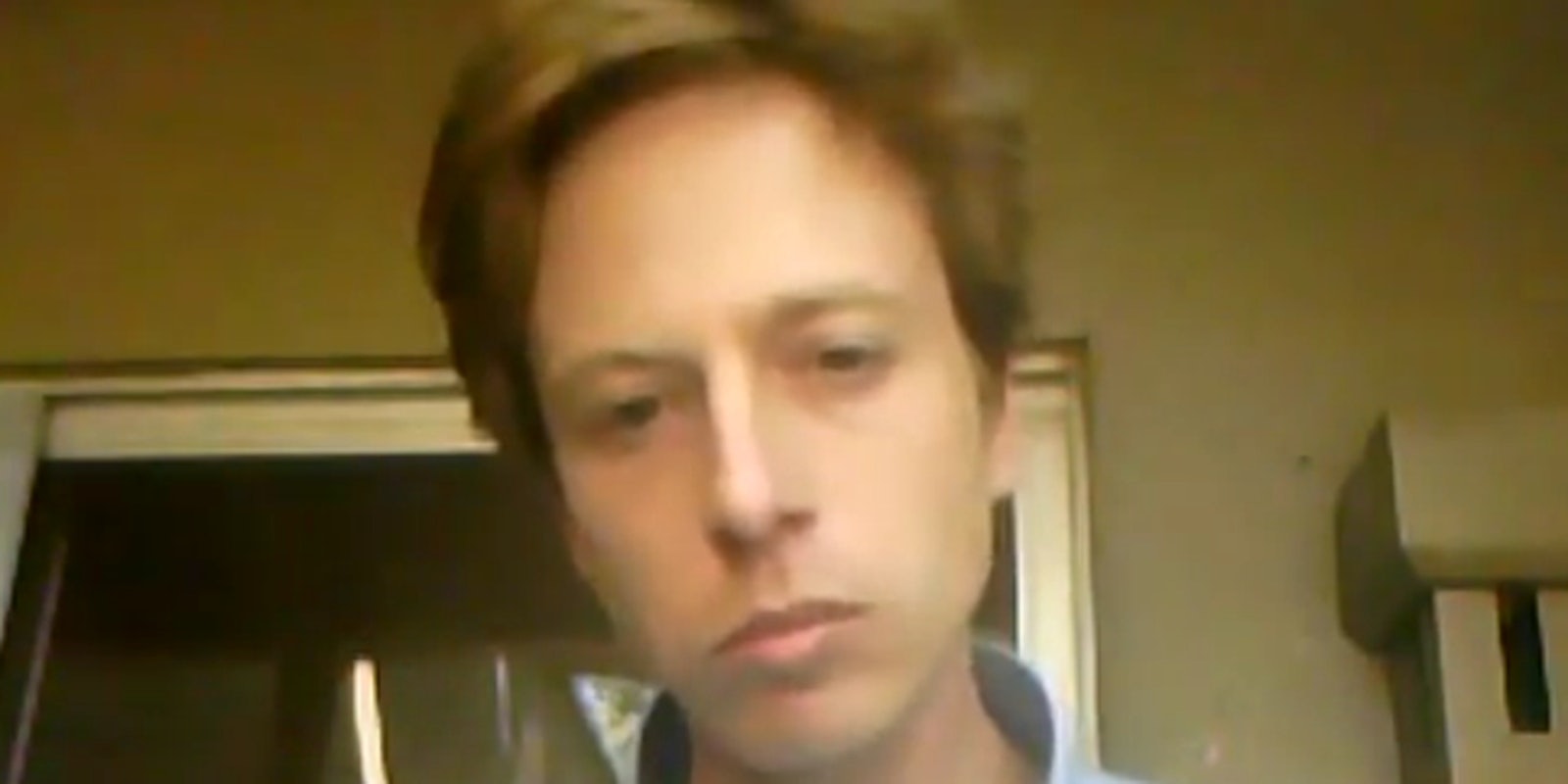Inside the Earle Cabell Federal Building in Dallas yesterday afternoon, Anonymous provocateur Barrett Brown and his defense team were handed a media gag order, issued by U.S. District Judge Sam A. Lindsay.
It prohibits Brown and attorneys Charlie Swift and Ahmed Ghappour from speaking to members of the media (“including, but not limited to, bloggers”) about discussing details pertaining to his case, in order to ensure a “fair trial by an impartial jury.”
They may speak about info already on the record, and Brown may continue to write, as long as it’s not about the charges against him. Brown and his defense team can also communicate with Kevin Gallagher, of Free Barrett Brown, about financial issues pertaining to Brown’s defense. Before the hearing Wednesday morning, his lawyers filed a memorandum in opposition to the gag order.
Brown, a 32-year-old journalist, was arrested in Dallas on September 12, 2012, and charged with pasting a link to stolen credit card info in an Anonymous IRC chat room, concealing evidence, and threatening an FBI agent. If convicted on all counts, Brown could be sentenced to 105 years, which is unprecedented for a journalist. He has stated in the past that he does not consider himself a hacker.
He’s been imprisoned at Mansfield Federal Detention Center for the past year, where he continued to publish articles, and receive phone calls from fellow journalists, including Glenn Greenwald of the Guardian, and documentary filmmaker Vivien Weisman.
Those “selected” calls, from between February and August 2013, were part of Assistant U.S. Attorney Candina S. Heath’s exhibits in support of the gag order. Several articles published about Brown were cited, including pieces from the Huffington Post, the New York Times, and Vice, as well as an article Brown penned for the Guardian.
Also cited were tweets from Ghappour, referencing several of those pieces, including a recent Rolling Stone article, in which Brown tangentially spoke about the charges against him. Heath called upon Robert Smith, the FBI agent Brown threatened on YouTube last year, and he discussed listening to recordings of jailhouse conversations between Brown and Greenwald, among others.
“We’re dismayed with the order, and I think it’s outrageous and amazing that a journalist’s speech is being restricted,” Free Barrett Brown’s Kevin Gallagher told the Daily Dot. “Indeed, this will make it harder for the public and the press to get reliable information about the trial. … The government’s argument is disingenuous and has the opposite effect of what they intended. The media profile and publicity will only increase, as more people look into why a journalist has been gagged in America.”
Whether the order is lifted remains to be seen, but this case has sparked a larger discussion about what freedom of the press means. In a Guardian piece he wrote in July, Brown made no mention of his trial, but he did explore the dark alleys of the “cyber-intelligence complex.” The kicker feels a bit more relevant now:
“This is the world we accept if we continue to avert our eyes. And it promises to get much worse.”
Brown’s trial is set for spring.
Screengrab via BarrettBrown/YouTube


